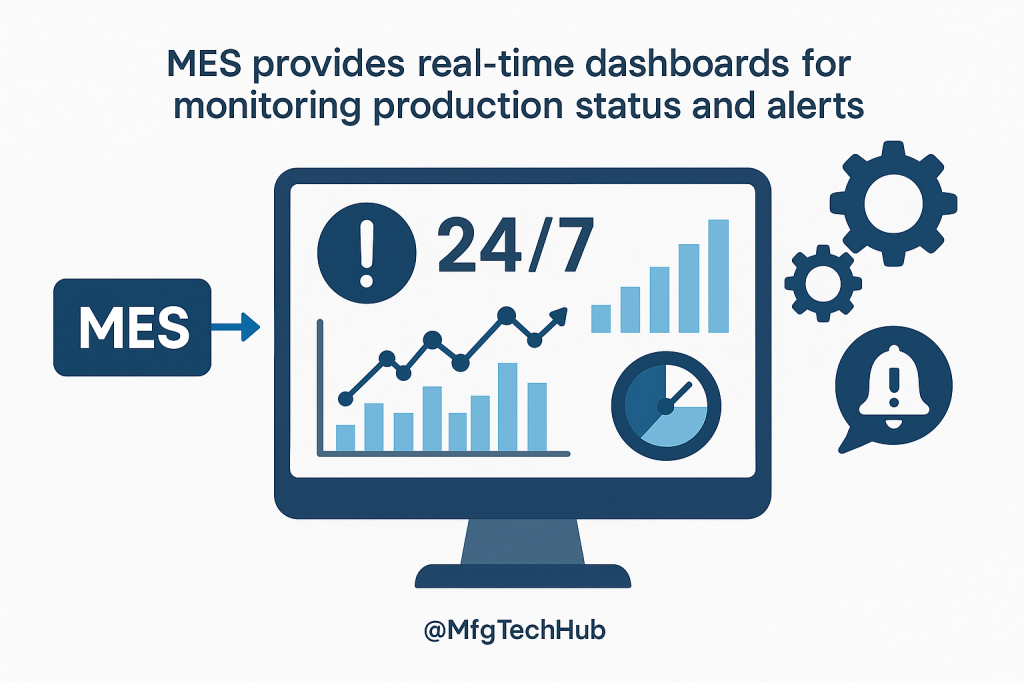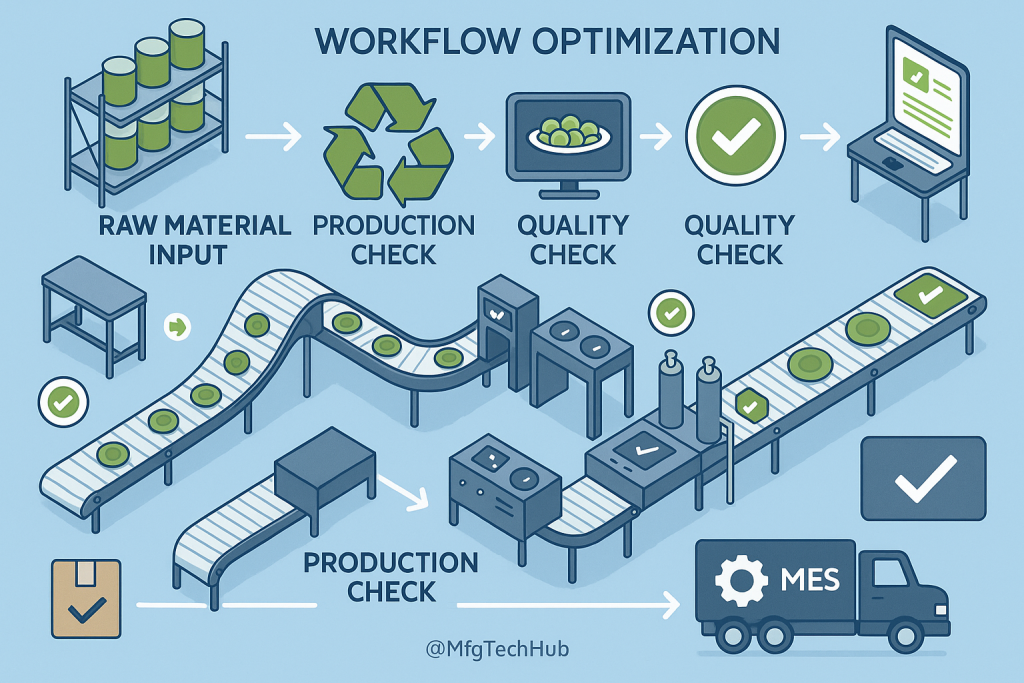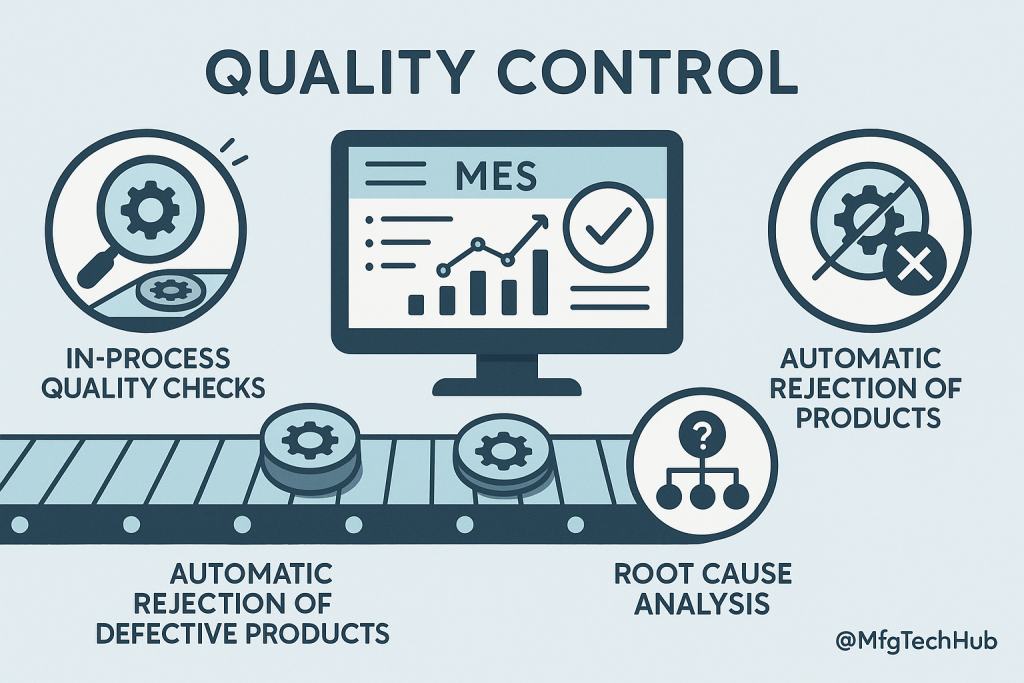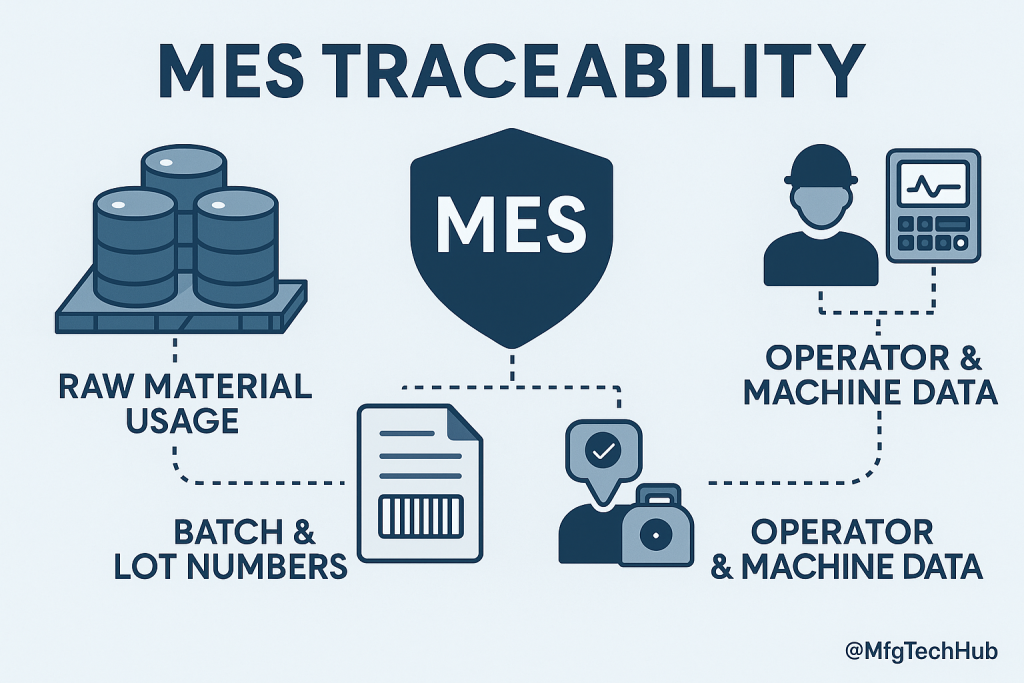The Importance of MES in Manufacturing
In the world of manufacturing, staying competitive requires more than just producing goods; it demands efficiency, quality, traceability, and adaptability. This is where the Manufacturing Execution System (MES) steps in, playing a critical role in bridging the gap between enterprise planning and shop floor operations. In this blog, we’ll explore why MES is indispensable in modern manufacturing and how it revolutionizes the production process.
What is MES?
A Manufacturing Execution System (MES) is a real-time production management tool that enables manufacturers to monitor, control, and optimize production processes on the shop floor. It integrates seamlessly with both enterprise-level systems like ERP and operational systems like SCADA and PLCs.
The Critical Role of MES in Manufacturing
1. Real-Time Visibility and Control

MES provides real-time visibility into production operations, enabling managers to:
- Monitor production progress
- Detect and resolve bottlenecks immediately
- Adjust workflows dynamically based on current conditions
2. Enhancing Efficiency

MES helps optimize resource utilization by streamlining workflows, reducing downtime, and eliminating waste. Key improvements include:
- Automated task scheduling
- Real-time machine performance tracking
- Identification of underperforming assets
3. Improving Product Quality

MES ensures:
- In-process quality checks
- Automatic rejection of defective products
- Root cause analysis
4. Seamless Traceability

MES tracks:
- Raw material usage
- Batch and lot numbers
- Operator and machine data
5. Facilitating Industry 4.0 Adoption
MES enables manufacturers to leverage technologies like:
- IoT: Data from connected devices
- AI/ML: Predictive analytics and process optimization
- Digital Twins: Simulated production modeling
Key Benefits of MES in Manufacturing
| Benefit | Description |
|---|---|
| Improved Efficiency | Streamlines workflows and reduces downtime. |
| Better Decision-Making | Real-time data enables informed decisions. |
| Higher Product Quality | Automated quality control ensures consistency. |
| Regulatory Compliance | Tracks production data for audits. |
| Cost Savings | Reduces waste and maximizes output. |
| Enhanced Collaboration | Unifies shop floor and enterprise operations. |
Real-World Applications of MES
- Automotive: Tracks parts, cycles, and ensures warranty compliance
- Pharmaceuticals: Maintains FDA-regulated batch records
- Food & Beverage: Minimizes waste and tracks ingredient flow
- Electronics: Ensures traceability and product integrity
MES vs. Traditional Systems
| Aspect | MES | Traditional Systems |
|---|---|---|
| Data Visibility | Real-time | Periodic reports |
| Integration | ERP, SCADA, IoT compatible | Siloed systems |
| Decision-Making | Immediate, data-driven | Delayed, manual |
| Scalability | Highly scalable | Limited and costly |
Challenges Without MES
- Inefficiencies: Slow issue resolution
- Inconsistent Quality: Human error-prone
- Poor Traceability: Difficult to audit
- Limited Insights: No real-time feedback
